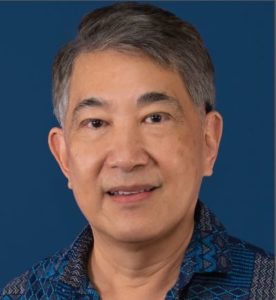
“What other CIO has an ocean view?” – Mark Wong, CIO of Honolulu
28 February 2024
by Jonathan Andrews
The City and County of Honolulu has begun a nationwide search for a new CIO as Mark Wong, who has led the Department of IT for the past 11 years, steps down at the end of 2024. Jonathan Andrews spoke to him about his achievements and remaining challenges
Honolulu is located on some of the most geographically isolated islands on the planet and is the only county on the island of Oahu, Hawaii.
“We can’t even rely on neighbouring counties – we don’t have any,” Wong tells Cities Today.
Yet, rather than viewing this as a constraint, Honolulu has used this to its advantage by becoming self-sufficient and more agile in developing new solutions.
IT overhaul
During Wong’s tenure, the city has been able to completely revamp its IT infrastructure including moving from using primarily third-party Windows applications running in virtual machines to city-developed Linux MEAN stack cloud-native applications in Docker containers running in Kubernetes.

“We built two new data centres from the ground up,” he says. “Utilising more efficient power and cooling, we’ve substantially increased data-centre density [which has allowed the city to develop power machine learning models].”
Aside from major infrastructure changes, Wong oversaw Honolulu greatly improve its security posture, reducing both storage and production of paper output, and implemented pervasive use of digital signatures without resorting to proprietary vendor solutions.
Cross-agency cooperation
Lōkahi – the city’s flagship operations platform – was initially conceived as a smart cities platform but today it integrates the workflows of over two dozen departments, identity management, databases, user interfaces, and core business functions.
“In a way, we act as an internal consultancy for our departmental customers,” he explains. “It replaces dozens of standalone applications and promotes cross-agency cooperation. From one screen you super impose data from tens of thousands of datasets, GIS layers, historical imagery, and real time feeds. Since many applications are built on this platform, the data is often from the system of record – not stale exported data.”
Reflections and remaining challenges
“Government does not typically have the talent and skills to solve many of its technological problems,” he says. “It can’t compete on pay, and is often saddled with a culture of resorting to paying others to solve its problems.”
To help overcome this challenge, Wong’s team developed training programmes to build a skilled and knowledgeable workforce where employees are able to develop deeper skills from open source-based work.
Although Wong was able to successfully increase his team’s budget in the past three years, he wishes he had pushed for this earlier.
“I had assumed that we had to work with the budget ceilings imposed on us,” he adds. “We got that ceiling raised after doing a lot of research on IT budgets of peer cities, but we should have done that many years ago.”
Advice
For the new CIO, Wong urges them to stay ahead of the technology curve by testing emerging technologies long before the industry adopts them.
“We’ve been operating on a very detailed 10-year technology roadmap, and this strategic and very detailed planning has worked well for Honolulu,” he says.
In retirement he plans to continue as an organist at the city’s cathedral, cook more, get into 3D printing, and “to figure out this ‘relaxation’ thing that everybody talks about”.
For more information and a complete description of the CIO position in Honolulu see here.







